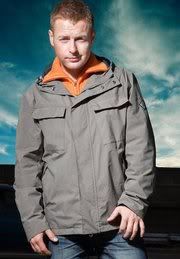I recently performed in a production of Tomasz Slobodzianek's Our Class, a fictional account of Poles and Jews caught up in the events in Eastern Poland during the Second World War and thereafter.
Poland has long been beseiged by her neighbors on all four sides--the Germans, the Russians, the Swedes and the Austrians have all, at one time or another, held parts of Poland or divided it up among them.
Notwithstanding this hostile occupation, Polish people survived as a nation primarily due to two factors: religion and language. Poles are primarily Roman Catholic unlike the Orthodox Russians, and the Protestant Prussians. Polish is a Slavic language--unlike German, but it is written in the Roman alphabet--unlike Russian. Such cultural distinction meant that Poland and the Polish people continued to survive, even without sovereignty. (Ironically, it is precisely that same culture distinction that allowed Jews to thrive in Poland).
With the overthrow of the three occupying powers (Germany, Austria and Russia) at the end of the First World War, Poland was finally able to secure independence after over 120 years of Partition. From the late 20's Marshall Piłsudski maintained a troubled realpolitik balancing the Germans and the Russians against each other, and allowing Poland to thrive between them. But his death created a power vacuum that increasingly aggressive Germans and Soviets were able to exploit. The Secret protocols to the Molotov-Ribbentropp pact put an end to any pretence of Polish independence, and the country was, again, partitioned--until the Nazis turned on the Soviets, and occupied all of Poland in June 1941.
Poland fared little better after the War. Although she regained territory from Germany in the West, she lost territory to direct annexation by the Soviet Union in the East, and her government was quickly subordinated to the Soviets. For all that Poland was one of the least repressive of the Soviet satellites, any claim to real Polish sovereignty was a sham. However, that liberalism did allow a trade union movement to develop and later flourish. Unlike the harsh crackdowns in Hungary in 1956 and Czechoslovakia in 1968, by the 1980's the Soviet Union was increasingly incapable of exercising rigid control.
Elections held in 1989 (even with a deck firmly stacked in favour of the Communist Party) demonstrated the beginning of the end for Soviet control in Eastern Europe. It is fitting that the return to democracy had its first successes in Poland, since she was the first nation in Europe (and the second in the world) to adopt a written constitution, and the first nation in the world to establish a Ministry of Education.
_________________
--James










